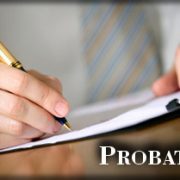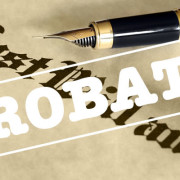From Cleveland, Ohio Estate Planning Attorney Dan Baron:
Estate planning attorneys will tell you that testamentary trusts are a great way to protect your children and plan for your estate. Below are 10 things to know about testamentary trusts and how they might fit into your estate plan. To learn more, contact Cleveland, Ohio estate planning attorney Dan Baron at Baron Law LLC.
- What is a testamentary trust?
A testamentary trust is a trust usually coupled with your last will and testament. Contrary to many living trusts, a testamentary trust is revocable and will not take effect until you die. The trust provides for the distribution of all or part of an estate and often proceeds from a life insurance policy held on the person establishing the trust. You can have more than one testamentary trust in your will.
- Why choose a testamentary trust?
Most often a testamentary trust is used to protect your children. For example, if husband who has a will dies in an automobile accident, his estate would pass to his wife. However, if both husband and wife are die in the accident, leaving their two minor children behind, a simple will will not provide a plan for the estate. Thus, a testamentary trust may provide guidelines as to how the estate is passed to their children. There are other trusts to consider. Contact your estate planning attorney to learn more.
- How do you create a testamentary trust?
As mentioned above, the most common way in Ohio to create a testamentary trust is to include the necessary language in your will. The creator of the trust (known as the “settlor”) dedicates a Trustee who then administers trust. For example, in the event both spouses die, the trust might make the estate pass to their children at the age of 18. Or, the estate might pass in the even one of the kids gets married. It is recommended that an estate planning attorney create your trust.
- When is a testamentary trust created?
Unlike living trusts, the money is not distributed automatically. Many people believe that testamentary trusts avoid probate. However, there still are some probate considerations that are involved. In Ohio, typically a testamentary trust begins at the completion of the probate process after the death of the person who has created it. It is recommended that an estate planning attorney help guide you through setting up the trust.
- What is the term?
A testamentary trust lasts until it expires, which is provided for in its terms. Typical expiration dates may be when the beneficiary turns 25 years old, graduates from university, or gets married.
- How is the probate court involved?
As mentioned above, a testamentary trust will not automatically take effect. Before the creator dies, the probate court checks up on the trust to make sure it is being handled properly. Once the creator dies, the beneficiaries of the estate should contact an estate planning attorney to carry out the trust.
- Who can be the trustee of a testamentary trust?
Anyone can be a Trustee for a testamentary trust. However, it is recommended that the Trustee be someone that the creator trusts. The Trustee will have great responsibility in administering the deceased’s wishes.
- Does the trustee have to honor the terms set out for expenditures in the will?
It depends. Ultimately it is up to the Trustee to determine whether a certain act or time has occurred in order to distribute the estate. Some of these events are very easy to figure out. For example, if the trust provides that the estate be distributed upon a marriage, that event is easy to determine. Conversely, if the trust provides that a certain dollar amount be distributed upon a child “finding a good job,” it becomes more subjective for the Trustee. Thus, it’s imperative to hire a qualified estate planning attorney to help draft a will or trust.
- When can I opt out of a trust?
Generally, if the person’s estate is small in comparison to the potential life insurance proceeds or other amounts that will be paid to the estate at death, a testamentary trust may be advisable.
- How much does it cost to set up a testamentary trust?
It is generally inexpensive to set up a will with a testamentary trust. In most cases, attorney Dan Baron at Baron Law LLC can set up a testamentary trust for less than $1,000. If the estate plan is more complicated, the legal fees may be higher. If you are interested in setting up a trust or estate plan, contact a Cleveland, Ohio estate planning attorney. Call Baron Law LLC today at 216-573-3723. You will speak directly with an attorney who can help with your estate planning needs.






